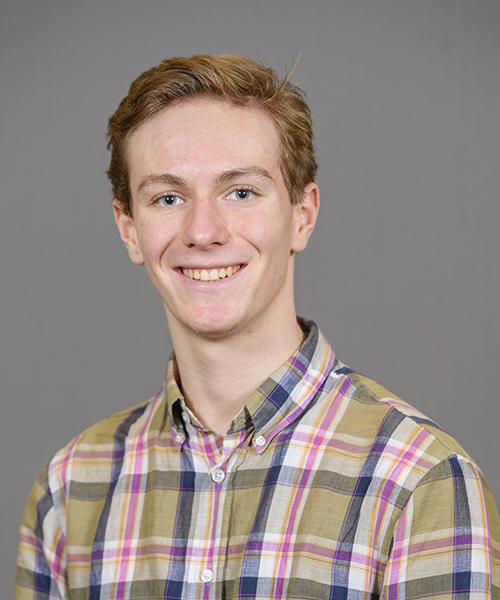
Overcoming a Deficit in Understanding
Nicolas Gardner | 2022年6月5日
响应: Georgetown Student Dialogue Participants Reflect on Exchange with Fudan University
Aislin Salassi
注:中英文网站上发表的学生日志均为英文。
Having had limited opportunities to discuss U.S.-China affairs with Chinese peers in similar fields as me, I was excited but nervous to be part of a dialogue between Georgetown and Fudan University students. I tend to be optimistic when it comes to world affairs, but also swirling in my head were questions that were cause for apprehension. What would the students from Fudan University be like? Would they stalwartly defend all the policies put forward by the Chinese government? Would I be able to explain American policies and national interests sufficiently? Would I be able to promote friendship between our two countries over the growing penchant for animosity?
There were definite moments of tension within the group—I especially remember this when discussing our respective countries’ international development projects. For China’s Belt and Road Initiative, common complaints from the opposition are that the projects are unsustainable financially for the receiving countries and that they do little to contribute to local socio-economic development. For the United States involvement in Bretton Woods Institutions and other uni- and multilateral projects, opposition frequently cites unrealistic and inequitable standards for developing countries, many of which suffered under imperialist systems and may continue to be exploited for resources or geopolitical gain. Speaking with our Fudan University colleagues, it was apparent that both systems had flaws, but with discussion, I found that one’s strengths could, in some ways, offset the deficiencies of the other. Cooperation thus may yield benefits not only for our two countries but for the world at large. However, this begged the question: with so much to gain, why does U.S.-China cooperation remain limited at best?
A possible explanation our group raised is domestic limitations. It can at times feel as if, rather than solving the complex issues within one’s borders, governments may instead turn to blame external forces for issues at home. Indeed, this is not a characteristic exclusive to great powers. Rather, it highlights a global commonality: each country faces issues as diverse as humanity itself. Within the space of our dialogues, we thus prompted each other on domestic issues, some of which seemed directly connected to the way our governments act on the global stage.
In a time of heightened tensions when media often simplifies countries to be moralistic caricatures of national interests, it is important to have these close dialogues. Without them, we cannot add context to a country’s foreign policy objectives nor understand areas of cooperation realistic to domestic political constraints. However, these kinds of dialogues must be an ongoing process if they are to work, continuing even when compromises seemingly cannot be reached. Otherwise, we may forget that the other party in a negotiation, competition, or cooperative effort is human in nature.
Despite our limited time to converse, we seemed to all have things we would do differently were we the ones leading our countries. As part of a truly privileged class attending top tier universities in two countries driving the global economy, we very well may find ourselves in such a capacity. Talking with our Fudan colleagues was heartening in this regard. In the environment of trust that we created together, we were able to be self-reflective and examine our countries’ policies from an analytical perspective. To me, these conversations represent hope and display understanding and empathy that is often absent at higher levels of dialogue. Though we are but students now, we are also the future of our countries and the larger global community. Should we as the next generation pursue the continuation of these dialogues, we stand to gain much, not the least of which is optimism for a peaceful future between our countries and within our own borders.
Aislin Salassi (MASIA’23) is studying to receive her master’s degree from Georgetown School of Foreign Service Master’s in Asian Studies program.

Nicolas Gardner | 2022年6月5日

Sarah Hsieh | 2022年6月5日

Ari Filler | 2022年6月5日

Gershon Stein | 2022年6月5日

Jina Zhao | 2022年6月5日

Phineas Donohue | 2022年6月5日

Sean Rong | 2022年6月5日

Helen Zhang | 2022年6月5日

Rael Baird | 2022年6月5日

Emily Li | 2022年6月4日